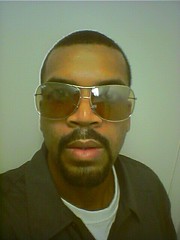Poverty in Boston, What Poverty?
| by Sofia Jarrin-Thomas Email: sofiajt (nospam) yahoo.com (unverified!) | |
| |
| |
| Meanwhile, crime in Boston is still on the rise as Mayor Thomas M. Menino gave the order this past spring to hire 70 new police personnel. The increased police presence forced Rev. Bruce Wall to tell a Boston Globe reporter that, “Every Friday night when I walk the neighborhoods I see the police pulling over a number of young people, stopping, frisking, inquiring, checking on weapons” and went on to complain that the police force looked more like an Aryan Nation, turning good kids into bad kids. The good kids and their mothers sure complained last week when Officer Jarrod Gero interrupted a 4-year-old child’s birthday party in a courtyard on Sonoma Street, in Roxbury, pepperspraying several guests in the process, according to the Boston Phoenix. Only one arrest was made: 24-year-old Jerome Goffigan, who according to several witnesses was playing musical chairs with the children, charged with six crimes, ranging from marijuana possession to assaulting an officer. Party goers complained bitterly to the Phoneix about the unnecessary force of the "ensuing 18 officers who swarmed the courtyard — still filled with children — their guns drawn and shouting orders." The Boston Police Department’s “surgical approach” to crime by “taking out the bad characters” has focused largely in Dorchester, Mattapan, and Roxbury, where 85 percent of the crime is concentrated. So how does this relate to poverty? Curiously, all three are distressed neighborhoods where the average median household income ($35, 537) is almost half that of Cambridge’s ($61, 646). In 2003, the Civil Rights Project at Harvard University reported that blacks and Latinos are five to six times more likely than whites to live in Metro Boston poverty neighborhoods (with poverty rates of 20% or higher), and Asians are three times more likely. “The costs of living in neighborhoods of concentrated poverty include higher rates of dropping out from high school, teen childbearing, and adolescent delinquency, among other costs,” said the report. The Center for Economic Research in Washington, D.C., released in 2003 a report that showed how when job quality improves, incomes rise, particularly for the lowest earners; and poverty, welfare rolls, and crime all fall. And as early as 1999, a review of findings at the Federal Reserve Board conference in New York found that “increased levels of crime, poor health, mortality, poor schools, and poor housing are associated with higher levels of inequality across cities, states, and nations.” But the original question wasn’t about the correlation between poverty and crime, it was about how poverty is not apparent to a Boston Globe editor. In Massachusetts, the gap between upper- and lower-income families has grown more in Massachusetts than in 47 of the 50 states over the past two decades, according to the Massachusetts Budget and Policy Center. The average income of the 20 poorest families has grown 16 percent from $16,938 to $19,690 per year, compared to a soaring 105 percent growth for 5 percent of the wealthiest families at $233,108 per year. The Boston Indicators Project reports that income inequality in Massachusetts began 40 years ago, and that in 2004, more than 40% of Boston families had incomes below Self-Sufficiency Standards. In Roxbury alone, 50.8% of the population live under the poverty line, according to the EPA’s Urban Environmental Program in Massachusetts. Ironically, that same year Massachusetts was the only state in the country to shrink in population size, as those who could afford it ventured better opportunities and cheaper housing elsewhere. In New Orleans it took a catastrophe for people to face impoverished America. One would hope that we can get past our pre-conception of living in the “richest nation in the world” and see how economic inequality in this country affects our neighborhoods. As Boston continues to face high energy, housing, health care, and higher education costs — and a poverty-blind editorial board at the Boston Globe — one needs to ask who will be left behind to deal with our strained communities. A stronger police force certainly can’t be the best answer | |
See also:
http://www.tbf.org/
http://www.epinet.org/





<< Home